
Color, 1979, 121 mins.
Directed by Milos Forman
Starring John Savage, Treat Williams, Beverly D'Angelo, Annie Golden, Dorsey Wright
BFI (Blu-ray & DVD) (UK RB/R2 HD/PAL), MGM (Blu-ray & DVD) (US RA/R1 HD/NTSC) / WS (1.85:1) (16:9)

Color, 1979, 121 mins.
Directed by Milos Forman
Starring John Savage, Treat Williams, Beverly D'Angelo, Annie Golden, Dorsey Wright
BFI (Blu-ray & DVD) (UK RB/R2 HD/PAL), MGM (Blu-ray & DVD) (US RA/R1 HD/NTSC) / WS (1.85:1) (16:9)
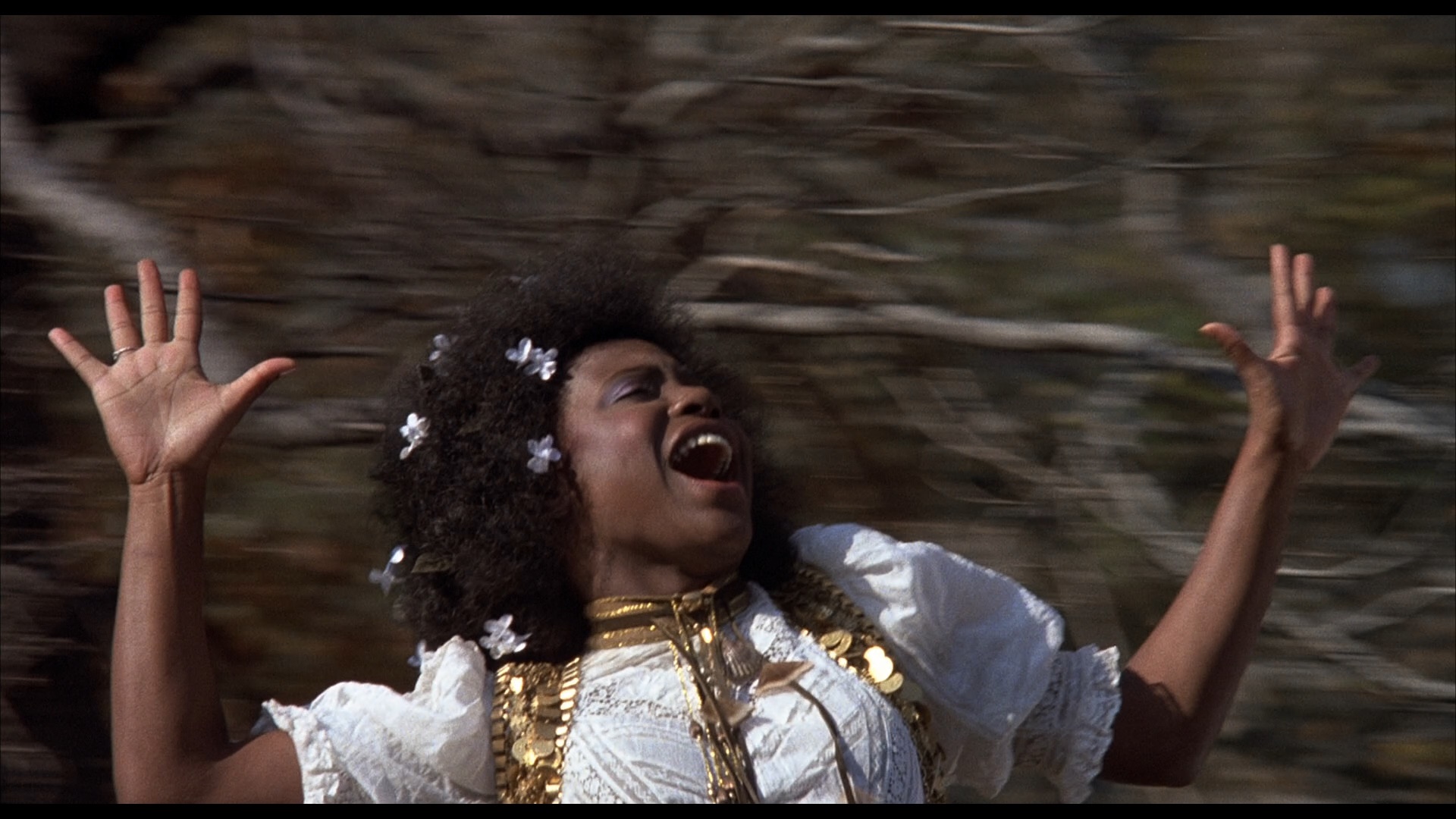 prime example of the right movie
prime example of the right movie 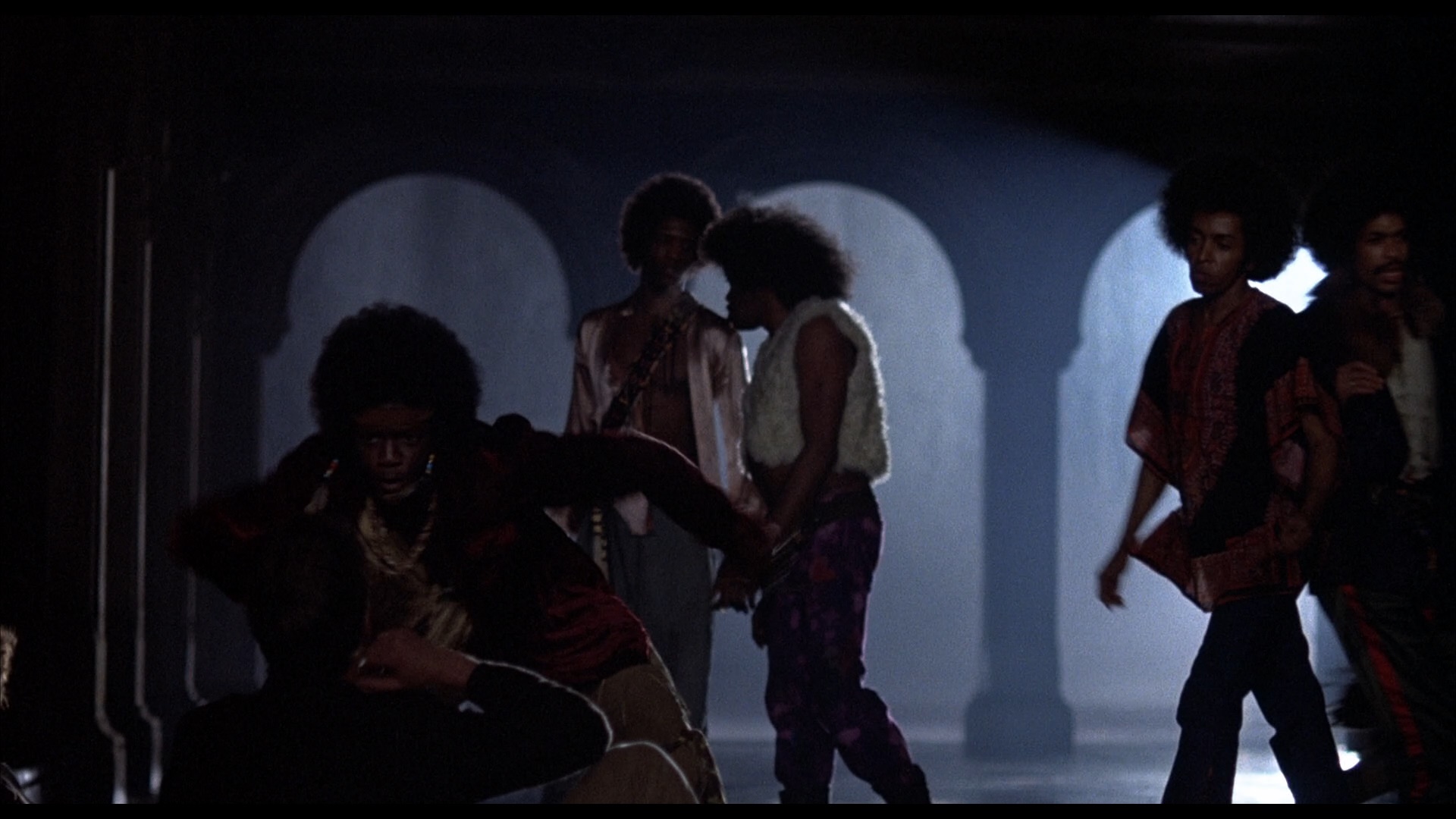 at the wrong time, Hair marked the belated follow-up film by Milos Forman after his multiple Oscar-winning drama, One Flew over the Cuckoo’s Nest. No stranger to counterculture cinema including his underrated 1971 film Taking Off, Forman was a fascinating choice to adapt the smash Broadway musical from the late ‘60s by Galt McDermot, Gerome Ragni and James Rado, which was just as talked about for its taboo-breaking cast nude scene as its protest-oriented politics. Released a decade after the ruckus over the original stage version, the film came in the wake of the game-changing Saturday Night Fever and Grease, and its substantial departures from the source material caused some annoyance at the time as well as underwhelming box office numbers. (The fact that The Warriors painted a darker portrayal of packs of young people that same year probably didn't help either.) However, TV airings and a long life on home video have helped its reputation soar in later years despite numerous cases of terrible packaging decisions trying to pass this off as a trippy flower power pop culture artifact, which it definitely isn’t.
at the wrong time, Hair marked the belated follow-up film by Milos Forman after his multiple Oscar-winning drama, One Flew over the Cuckoo’s Nest. No stranger to counterculture cinema including his underrated 1971 film Taking Off, Forman was a fascinating choice to adapt the smash Broadway musical from the late ‘60s by Galt McDermot, Gerome Ragni and James Rado, which was just as talked about for its taboo-breaking cast nude scene as its protest-oriented politics. Released a decade after the ruckus over the original stage version, the film came in the wake of the game-changing Saturday Night Fever and Grease, and its substantial departures from the source material caused some annoyance at the time as well as underwhelming box office numbers. (The fact that The Warriors painted a darker portrayal of packs of young people that same year probably didn't help either.) However, TV airings and a long life on home video have helped its reputation soar in later years despite numerous cases of terrible packaging decisions trying to pass this off as a trippy flower power pop culture artifact, which it definitely isn’t.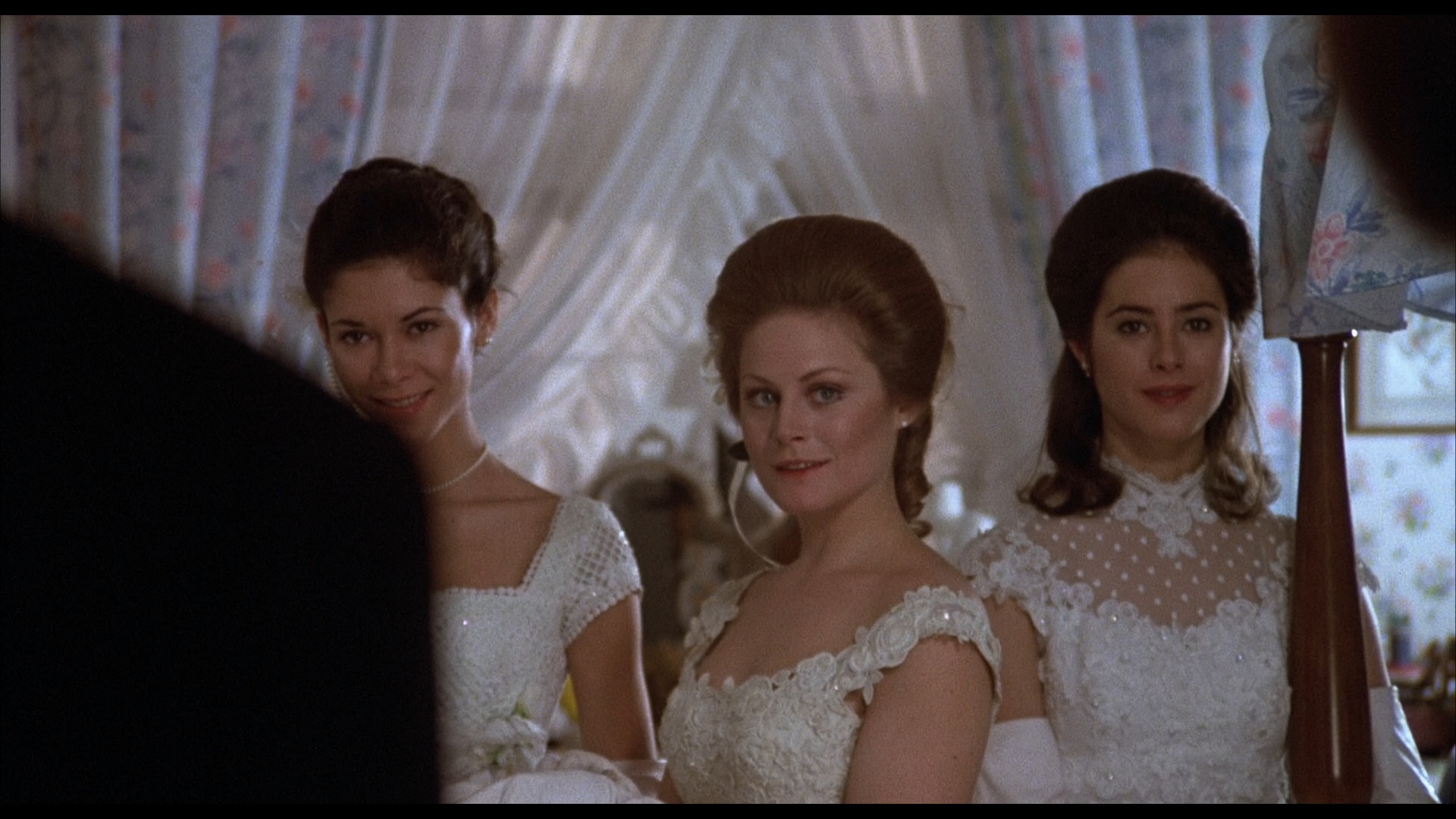 jail, drug use, party crashing, and the military ensue as the threat of the Vietnam War looms over them all.
jail, drug use, party crashing, and the military ensue as the threat of the Vietnam War looms over them all.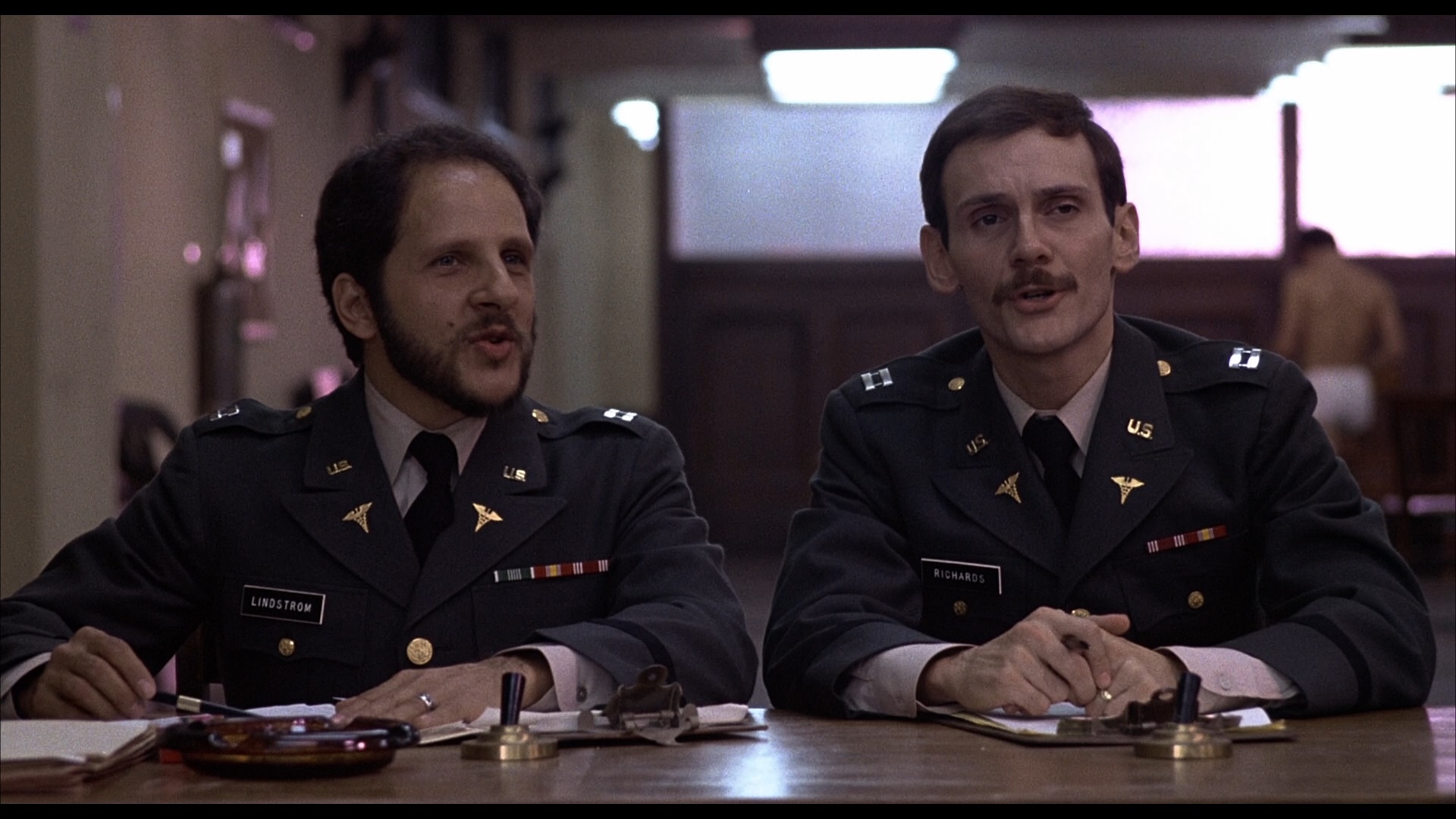 "Abie Baby" (which was originally the biggest number for Nell Carter). In fact, several additional songs were recorded for the film but only ended up on the soundtrack album; whether they actually ended up being shot and edited seems to be a mystery. In any case, what’s here works beautifully with committed performances from the young leads and knockout choreography by the great Twyla Tharp, including a fantastic multi-song hallucination sequence at the midpoint that vaults into full-on surrealism. The plotline is more linear than the show and throws in a switcheroo twist ending that alters the fates of two characters; though it doesn’t really make sense on any logical level, the ending delivers an emotional wallop that segues into a killer final five minutes tailor made for the post-Deer Hunter era.
"Abie Baby" (which was originally the biggest number for Nell Carter). In fact, several additional songs were recorded for the film but only ended up on the soundtrack album; whether they actually ended up being shot and edited seems to be a mystery. In any case, what’s here works beautifully with committed performances from the young leads and knockout choreography by the great Twyla Tharp, including a fantastic multi-song hallucination sequence at the midpoint that vaults into full-on surrealism. The plotline is more linear than the show and throws in a switcheroo twist ending that alters the fates of two characters; though it doesn’t really make sense on any logical level, the ending delivers an emotional wallop that segues into a killer final five minutes tailor made for the post-Deer Hunter era. 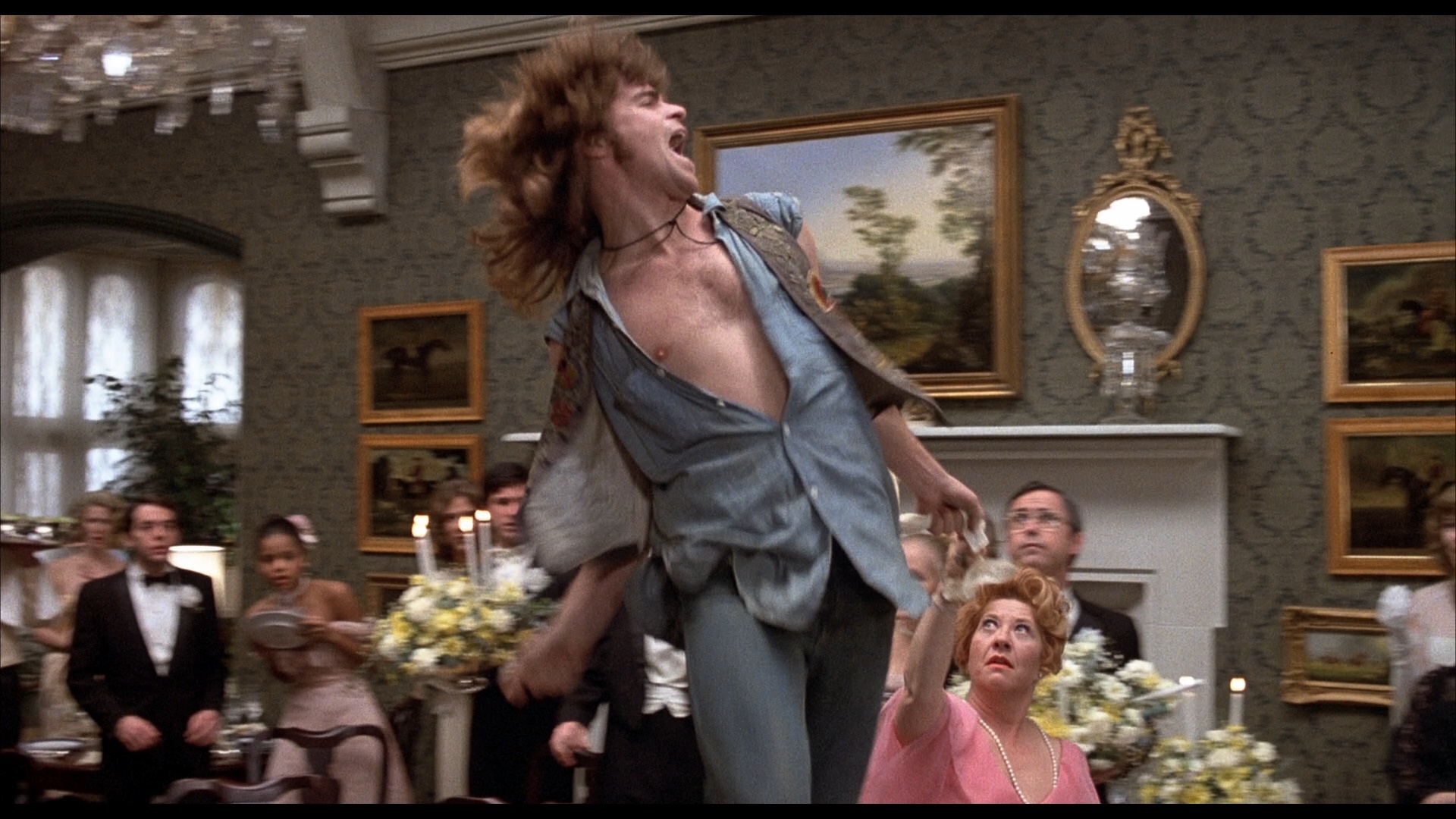 this problem as well as possible given that Forman is no longer with us, albeit with extras that may not be quite what you’d expect!
this problem as well as possible given that Forman is no longer with us, albeit with extras that may not be quite what you’d expect!  The transfer appears to be the same as the one used for the MGM Blu-ray, which is good news as that one was perfectly fine and captured that distinctive late ‘70s film stock look with visible film grain and a somewhat overcast and hazy look during the outdoor scenes. The English DTS-HD MA audio options include a 5.1 mix and the theatrical 2.0 one; the former is better if you want to keep your speakers handy while the latter has a stronger low end and more accurately replicates the feel of the theatrical prints. Optional English SDH subtitles are also provided. A third audio option is "Nicholas Ray in Conversation," a 55-minute audio interview with the director in London at the height of the counterculture era; he spends the time chatting about his career, and it's relevant here since he appears in the film as a military general.
The transfer appears to be the same as the one used for the MGM Blu-ray, which is good news as that one was perfectly fine and captured that distinctive late ‘70s film stock look with visible film grain and a somewhat overcast and hazy look during the outdoor scenes. The English DTS-HD MA audio options include a 5.1 mix and the theatrical 2.0 one; the former is better if you want to keep your speakers handy while the latter has a stronger low end and more accurately replicates the feel of the theatrical prints. Optional English SDH subtitles are also provided. A third audio option is "Nicholas Ray in Conversation," a 55-minute audio interview with the director in London at the height of the counterculture era; he spends the time chatting about his career, and it's relevant here since he appears in the film as a military general. 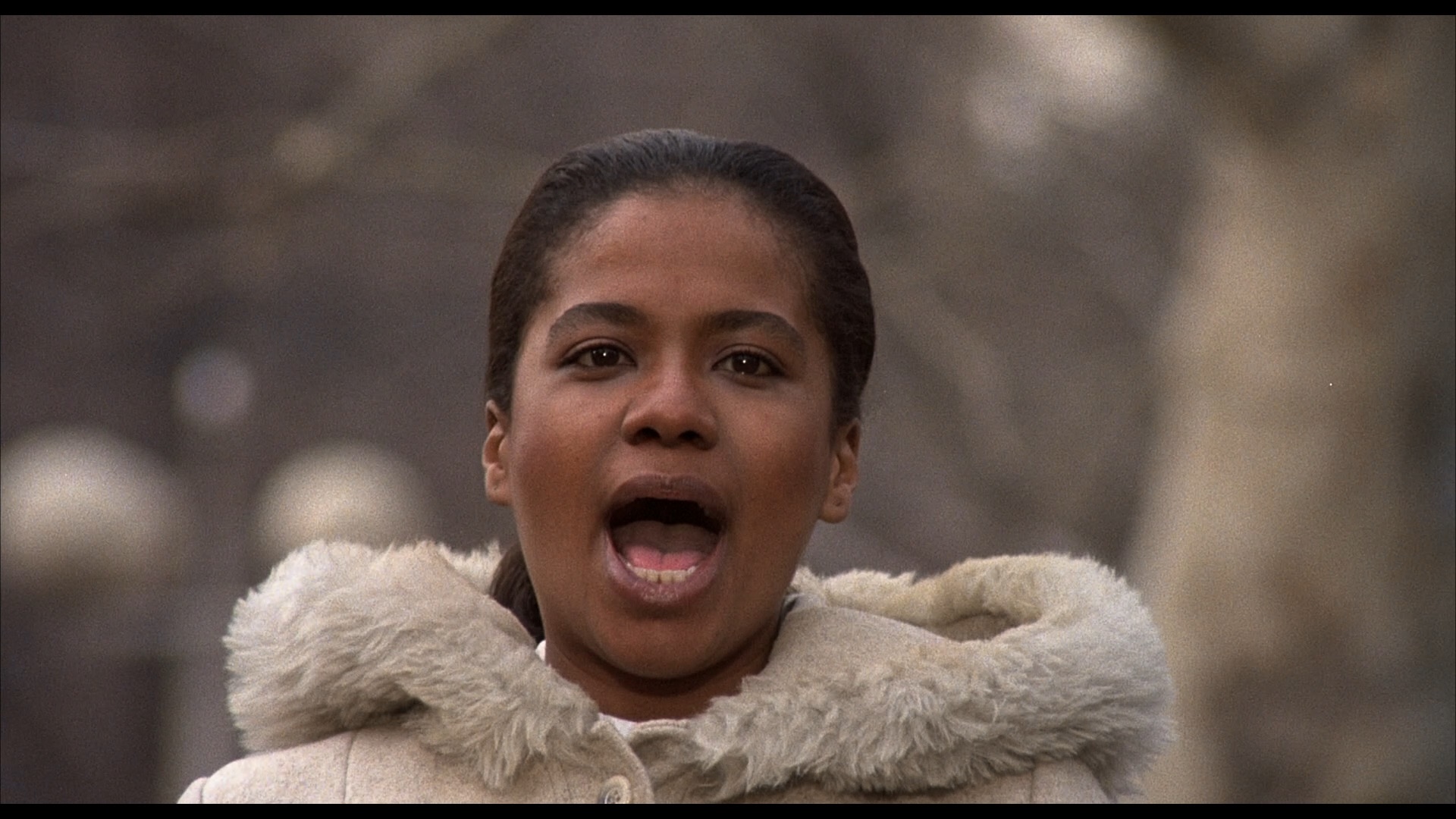 with colorful shots of musicians and naked hippies for good measure. The undated "Indian Pop Instrumental" (3m1s) is described
with colorful shots of musicians and naked hippies for good measure. The undated "Indian Pop Instrumental" (3m1s) is described 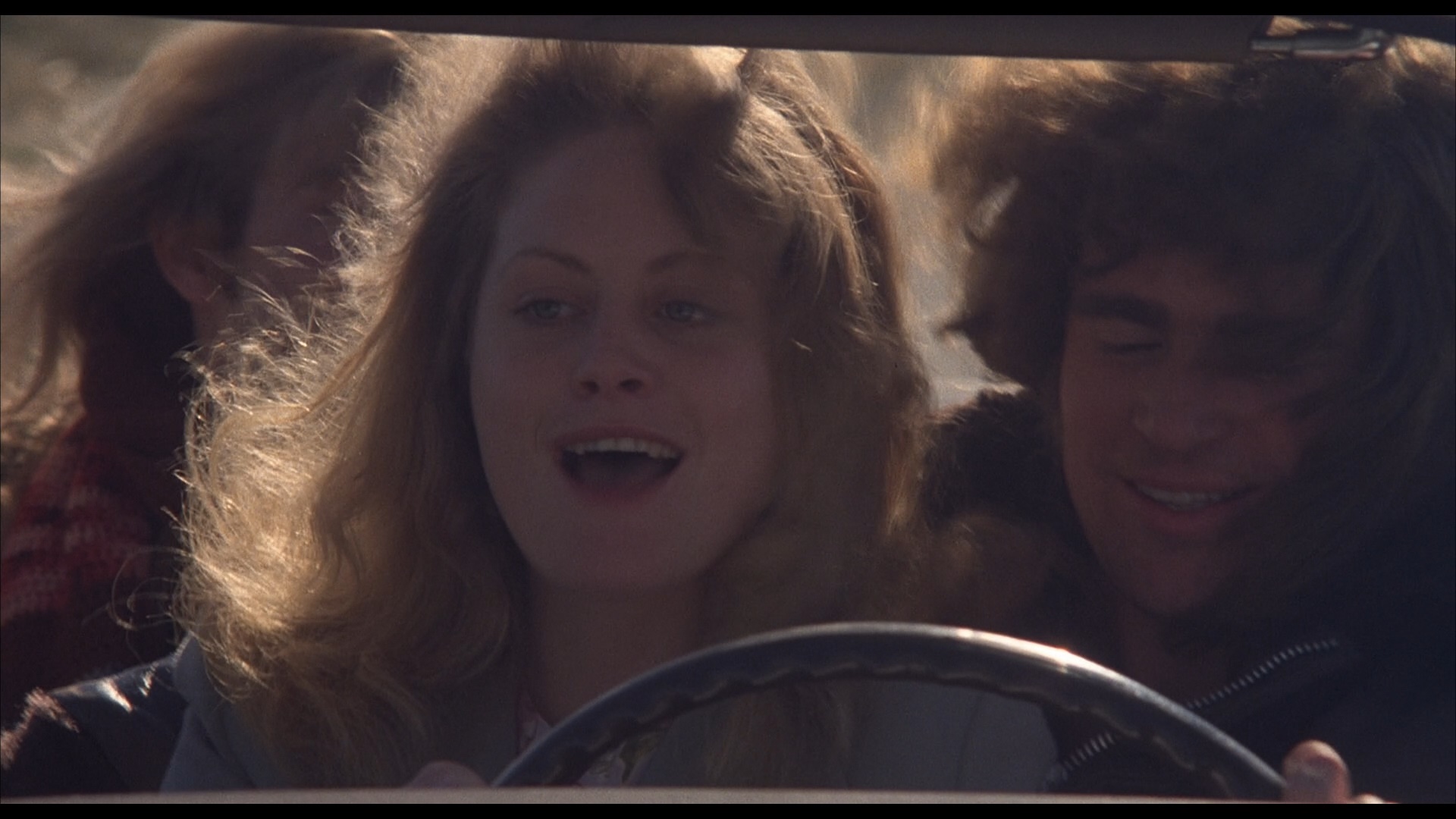 on the packaging as a "mysterious sitar groovefest," which just about sums it up. However, the longest and most jaw-dropping extra here is definitely "Disco Mania" (25m15s), which has nothing to do with the '60s but everything to do with 1979 as it charts a young boy's fascination with the disco lifestyle leading him to take up dancing lessons to up his game. Packed with real-life disco champions and a great soundtrack including "I Love the Nightlife" and "You Make Me Feel (Mighty Real," this is a real stunner if you're into disco pop culture and comes packed with enough sequins and roller skates to make your eyes pop. Program this one with your next viewing of Skatetown USA or Xanadu for maximum effect. The original trailer is also included along with a very extensive image gallery (15m13s), which includes tons of promotional art (including a rejected but very cool Bob Peak design) and a great promo shot of Twyla demonstrating one of her moves. The first pressing also comes with an insert booklet featuring liner notes by Ellen Cheshire, a new interview with screenwriter Michael Weller, and an essay about Forman by Kieron McCormack.
on the packaging as a "mysterious sitar groovefest," which just about sums it up. However, the longest and most jaw-dropping extra here is definitely "Disco Mania" (25m15s), which has nothing to do with the '60s but everything to do with 1979 as it charts a young boy's fascination with the disco lifestyle leading him to take up dancing lessons to up his game. Packed with real-life disco champions and a great soundtrack including "I Love the Nightlife" and "You Make Me Feel (Mighty Real," this is a real stunner if you're into disco pop culture and comes packed with enough sequins and roller skates to make your eyes pop. Program this one with your next viewing of Skatetown USA or Xanadu for maximum effect. The original trailer is also included along with a very extensive image gallery (15m13s), which includes tons of promotional art (including a rejected but very cool Bob Peak design) and a great promo shot of Twyla demonstrating one of her moves. The first pressing also comes with an insert booklet featuring liner notes by Ellen Cheshire, a new interview with screenwriter Michael Weller, and an essay about Forman by Kieron McCormack.![]()